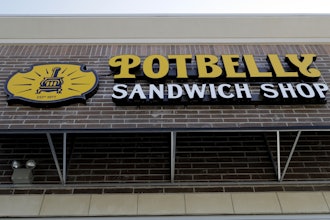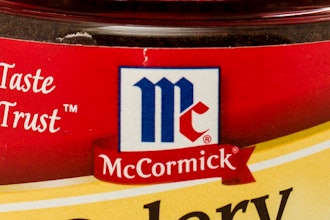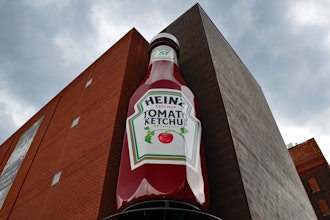
OAK BROOK, IL — TreeHouse Foods, Inc. announced Nov. 8 that its board of directors has approved a plan to explore strategic alternatives, including a possible sale of the company or a transaction to allow the company to focus on its higher-growth Snacking and Beverages business by divesting a significant portion of its Meal Prep business. The determination follows the company's ongoing, board-led strategic review which began earlier this year. TreeHouse has retained Evercore as its financial advisor and Sidley Austin LLP and Gibson Dunn as its legal counsel to assist with the exploration of alternatives.
Ann M. Sardini, Chair of the Board, said, "The Board's decision to explore strategic alternatives follows careful consideration as well as engagement with many of our shareholders over the past year. The TreeHouse team has executed a major transformation since 2018, improving the ability to support its private label customers and navigate a challenging operating environment. This progress and the strong long-term consumer demand trends for private label provide a favorable backdrop as the Board thoroughly reviews and considers strategic options with a commitment to maximizing value for all shareholders."
Steve Oakland, President and CEO, commented, "We continue to be confident in our ability to capitalize on the strong long-term fundamentals of our business. We remain committed to serving our customers and supporting our employees as the Board conducts this review. We are proud of the progress we have made to improve our efficiency and the actions we are taking to drive growth, optimize our portfolio and support our customers."
TreeHouse's commitment to shareholder value creation is evidenced by its track record of taking action to execute value-enhancing transactions, optimize the business and maintain a disciplined capital allocation approach. Since 2016, TreeHouse has reduced its total debt by more than $800 million and strategically invested its free cash flow to strengthen the Company's foundation and support categories that generate growth and improve profitability.
There can be no assurance that the exploration of strategic alternatives will result in a transaction or other strategic changes or outcomes. The Company has not set a timetable for the conclusion of its review, and it does not intend to comment further on it, unless and until the Board has approved a specific course of action, or otherwise determined that further disclosure is appropriate or required by law.
Third Quarter Financials
TreeHouse Foods also reported its 2021 third quarter financial results on Nov. 8, highlighted by the following:
Net Sales — Net sales for the third quarter of 2021 totaled $1,101.2 million compared to $1,045.7 million for the same period last year, an increase of 5.3%. The change in net sales from 2020 to 2021 was due to the following:
The net sales increase of 5.3% was primarily driven by the favorable impact of the inclusion of the business from the pasta acquisition of 3.2%, the increase of our underlying organic net sales of 1.7%, and favorable foreign exchange of 0.4%. Organic net sales was driven by higher pricing which was partially offset by unfavorable volume/mix excluding acquisitions. Favorable pricing was driven by pricing actions which partially recovered commodity and freight cost inflation. Volume/mix excluding acquisitions was unfavorable primarily due to supply chain disruption causing supply shortages and declines in service levels, and this was partially offset by increased demand in the food-away-from-home and co-manufacturing sales channels and new product sales.
Gross Profit — Gross profit as a percentage of net sales was 16.3% in the third quarter of 2021, compared to 18.0% in the third quarter of 2020, a decrease of 1.7 percentage points. The decrease is primarily due to commodity inflation. To a lesser extent, other decreases resulted from supply chain disruption causing increased labor costs and supply shortages and unfavorable channel mix from increased food-away-from-home demand. This was partially offset by favorable pricing actions to recover commodity and freight cost inflation, lower costs necessary to respond to the COVID-19 pandemic, such as increased production shifts, supplemental pay, protective equipment for employees, and additional sanitation measures, and favorable volume/mix from the inclusion of the business from the higher margin pasta acquisition.
Total Operating Expenses — Total operating expenses as a percentage of net sales were 14.0% in the third quarter of 2021 compared to 14.2% in the third quarter of 2020, a decrease of 0.2 percentage points. The decrease is primarily attributable to lower employee incentive compensation expense during the third quarter of 2021. This was mostly offset by higher freight costs due to freight cost inflation.
Total Other Expense — Total other expense increased by $0.2 million to $17.6 million in the third quarter of 2021 compared to $17.4 million in the third quarter of 2020. The increase was primarily due to unfavorable currency exchange rate impacts between the U.S. and Canadian dollar during the third quarter of 2021 compared to favorable currency exchange impacts in the prior year and lower favorable non-cash mark-to-market impacts from hedging activities, driven by commodity contracts. This was mostly offset by lower interest expense as a result of debt refinancing completed in the first quarter of 2021 and third quarter of 2020.
Income Taxes — Income taxes were recognized at an effective rate of 18.3% in the third quarter of 2021 compared to 49.1% recognized in the third quarter of 2020. The change in the Company's effective tax rate is primarily the result of a change in the amount recognized due to the enactment of the CARES Act, a change in the amount of valuation allowance recorded against certain deferred tax assets, and a change in the amount of non-deductible executive compensation.
Net Income from Continuing Operations and Adjusted EBITDA — Net income from continuing operations for the third quarter of 2021 was $6.7 million, compared to $11.4 million for the same period of the previous year. Adjusted EBITDA1 from continuing operations was $108.6 million in the third quarter of 2021, a 20.5% decrease compared to the third quarter of 2020. The decrease in adjusted EBITDA was primarily due to commodity and freight cost inflation. To a lesser extent, other decreases included supply chain disruption causing increased labor costs and supply shortages, and unfavorable channel mix from increased food-away-from-home demand. This was partially offset by favorable pricing actions to cover commodity and freight cost inflation, lower employee incentive compensation expense, and favorable volume/mix from the inclusion of the business from the higher margin pasta acquisition.






















